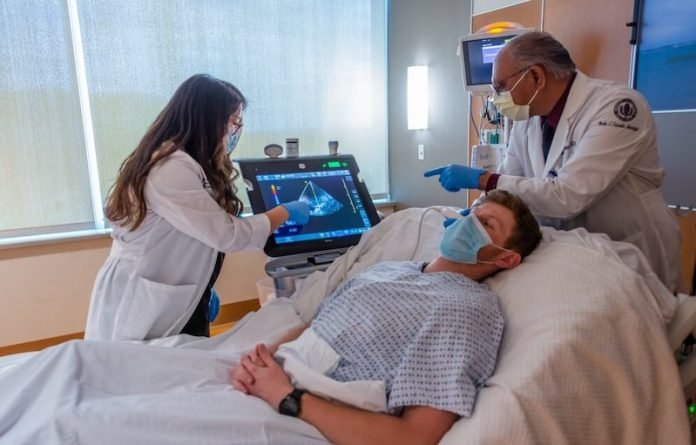
Scientists from the University of Connecticut found that COVID patients have an added risk of stroke.
They analyzed data on more than 20,000 U.S. adults hospitalized with COVID-19. The analysis found that their risk of stroke was higher than for patients with other types of infections, including flu.
Different studies around the world have shown that having COVID-19 increases your risk of stroke. This is especially true in the first two weeks of infection when your risk of stroke can increase by 3-6 times.
Other studies show this risk of having a stroke can be as high as a 7.8-fold increase. This risk continues to be high for the month after infection, then starts to decrease again.
The team says COVID-19 causes a hyperinflammatory state which can cause clots to form anywhere in the body. The disease also affects blood vessels.
These clots can affect any organ in the body, but when it affects the brain, it causes a stroke.
The team found COVID-19 affects younger adults who otherwise had none of the traditional risk factors such as high blood pressure, diabetes, and smoking.
It has been observed in multiple studies that COVID-19 causes more large strokes. This is due to larger clots forming and blocking the bigger vessels in the brain—leading to large strokes.
A large vessel stroke is a stroke that happens due to the interruption of blood flow in one of the main large arteries in the brain.
Because a large vessel stroke happens when a large artery is blocked, all of its smaller branches become blocked too.
The team also says that COVID patients who have strokes usually stay longer in the hospital, and are less likely to be discharged home from the hospital—meaning they may need a nursing home and are more likely to die in the hospital.
For all strokes, remember the acronym BE FAST. If any of these happen suddenly, call 911.
B—Balance problem
E—Eyes (vision issues)
F—Facial droop
A—Arm weakness
S—Speech issues
T—Time! (call 911 immediately)
If you care about COVID, please read studies about new risk factor for severe COVID-19, and new antibody treatment for COVID-19.
For more information about Covid, please see recent studies about two paths toward ‘super immunity’ to COVID-19, and results showing that CBD from cannabis may inhibit COVID-19 infection.
The research was conducted by Dr. Gracia Mui et al.
Copyright © 2022 Knowridge Science Report. All rights reserved.



